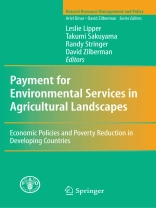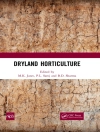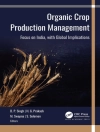In recent years, development policy has responded to an increasing concern about natural resource degradation by setting up innovative payment for environmental services (PES) programs in developing countries. PES programs use market and institutional incentives in order to meet both environmental and poverty alleviation objectives. However, their optimal design, implications for the rural poor, and how these initiatives integrate into international treaties on global warming and biodiversity loss are still being discussed. This book addresses these issues by scrutinizing analytical tools, providing policy insights and stimulating debate on linkages between poverty alleviation and environmental protection. In particular, it turns attention towards the role of environmental services in agricultural landscapes as they provide a living for many poor in developing countries. It serves as a valuable reference for academics and students in various disciplines, as well as for policy makers and advisors.
This book is a co-publication between Springer and the Food and Agriculture Organization of the United Nations.
İçerik tablosu
and Overview.- Putting Payments for Environmental Services in the Context of Economic Development.- Designing Payments for Environmental Services with Weak Property Rights and External Interests.- Marketing Environmental Services.- Economics of Carbon Sequestration Projects Involving Smallholders.- Conservation Payments to Reduce Wildlife Habitat Fragmentation and Disease Risks.- Payments for Ecosystem Services, Poverty and Sustainability: The Case of Agricultural Soil Carbon Sequestration.- Lessons Learned from Mexico’s Payment for Environmental Services Program.- Agricultural Landscape Externalities, Agro-Tourism, and Rural Poverty Reduction in Morocco.- Exploring Environmental Services Incentive Policies for the Philippines Rice Sector: The Case of Intra-Species Agrobiodiversity Conservation.- Assessing the Feasibility of Wetlands Conservation: Using Payments for Ecosystem Services in Pallisa, Uganda.- Managing Wildlife Damage to Agriculture in Bhutan: Conflicts, Costs and Compromise.- Conclusion.












